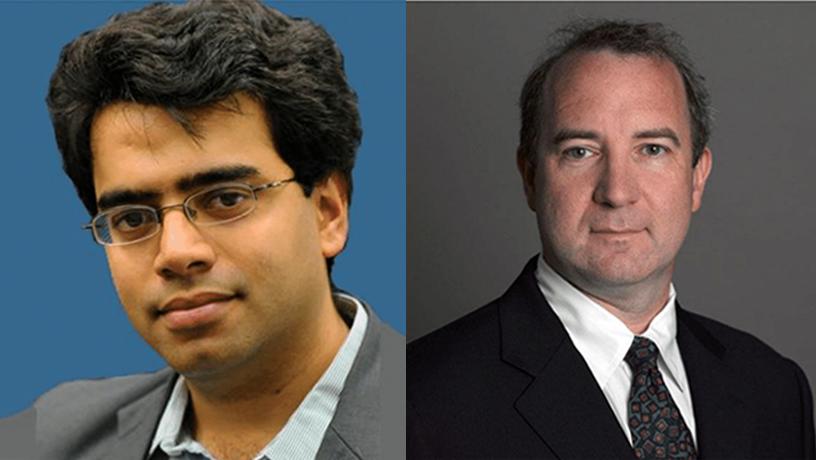
MixComm, a semiconductor company co-founded in 2017 by Columbia Electrical Engineering Professor and COSMOS co-PI Harish Krishnawamy, has been acquired by Sivers Semiconductors for $155 million. The Swedish-based Sivers Semiconductors is a leading semiconductor company with two vertical markets–wireless and photonics.
MixComm builds millimeter (mm)-wave chips that power infrastructure such as base stations and repeaters for emerging 5G networks, as well as mm-wave SATCOM terminals. The startup’s technology is based on innovations and IP developed in Krishnaswamy’s lab over several years of DARPA funding. MixComm is venture-backed and has been funded by Kairos Ventures over two rounds of funding–series A and series B. Overall, MixComm has raised some $15M of venture capital funding to date.
“This is a very good fit,” said Krishnaswamy, who founded MixComm with Frank Lane, who at the time was Qualcomm’s Vice President of Engineering. “Sivers Semiconductors’ technology and MixComm’s are highly complementary, and we envision significant synergies moving forward.”
Mm-wave technology is the centerpiece of 5G networks. The mm-wave frequency range extends from 30GHz to 300GHz, an order-of-magnitude higher frequency than the <6GHz frequencies used today in 4G networks and WiFi. The higher frequencies allow much wider bandwidths and data rates, thus enabling new applications such as untethered virtual/augmented reality, streaming HD video, connected and self-driving cars. Krishnaswamy and other scientists are now looking beyond 5G, exploring mm-wave and terahertz frequencies for future 6G networks, albeit at an early research stage.
This technology is a significant step forward in making next-generation wireless networks more efficient and more sustainable. Importantly, it shows how universities can bring cutting-edge research to real world applications and contribute a competitive advantage to the market.
“This technology is a significant step forward in making next-generation wireless networks more efficient and more sustainable,” said Shih-Fu Chang, Columbia Engineering Interim Dean. “Importantly, it shows how universities can bring cutting-edge research to real world applications and contribute a competitive advantage to the market. It will be exciting to see the impact MixComm has on emerging applications and the market and where Harish’s research will take him next.”
MIxComm, which designs the chips and has them fabricated by an external foundry, Global Foundries, has licensed IP from Columbia related to high-power high-efficiency mm-wave amplifiers implemented in RF SOI technology that achieve 10x higher output power and 2x higher efficiency than current solutions out in the market. MixComm’s higher output power enables mm-wave base stations to transmit over longer distances and form more reliable and robust mm-wave links. MixComm has also developed industry-first Antenna-in-Package technology that enables tight connections between the mm-wave chips and the antennas, which is crucial for the higher mm-wave bands.
One of the biggest challenges facing mm-wave deployments today is the limited range of mm-wave links and their susceptibility to blockage. MixComm’s higher efficiency means that base stations consume less energy and generate less heat, enabling lower cost base stations and less energy consumption for the network overall, making deployments more green and sustainable.
“Each year, between 15 and 30 new startups are launched based on Columbia’s science and intellectual property,” said Greg Maskel, Senior Technology Licensing Officer at Columbia Technology Ventures. “It is incredibly exciting when these startups get acquired, and the technologies are accelerated on their path from the lab to the market.”


